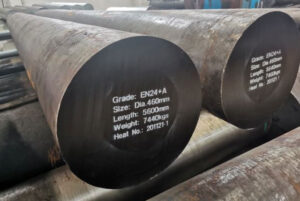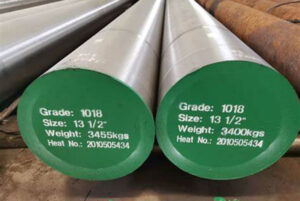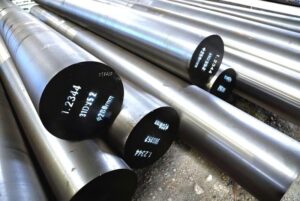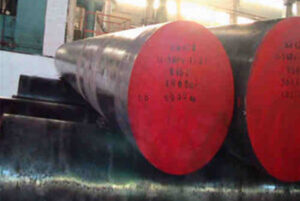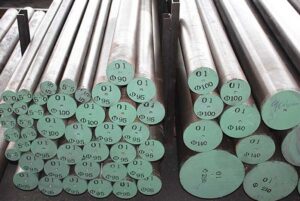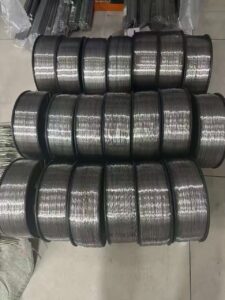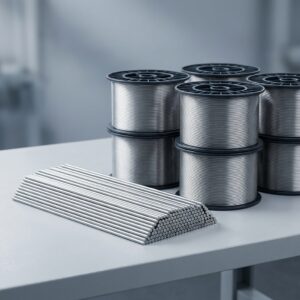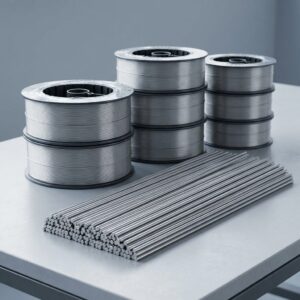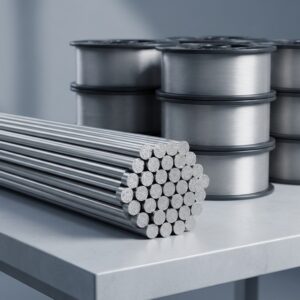Introduction
Have you ever marveled at the strength and resilience of a towering skyscraper, the unyielding grip of a gear in a complex machine, or the unwavering performance of a critical automotive component? Chances are, the unsung hero behind these feats of engineering is a remarkable material called 4140 alloy steel.
This article delves into the fascinating world of 4140 alloy steel, exploring its composition, properties, applications, and the factors that make it a cornerstone of countless industries. We’ll unpack its strengths and limitations, compare it to similar steels, and answer burning questions to equip you with a comprehensive understanding of this versatile material.
What is 4140 Alloy Steel?
4140 alloy steel belongs to the category of low-alloy steels. Imagine a spectrum of steel varieties, with pure iron on one end and highly complex, element-rich alloys on the other. 4140 sits comfortably in the middle ground, where its composition strikes a perfect balance between affordability, workability, and enhanced properties compared to plain carbon steel.
The magic lies in the specific elements added to the steel’s base of iron and carbon. In the case of 4140, the key players are:
- Chromium (Cr): This element enhances hardenability, corrosion resistance, and overall strength.
- Molybdenum (Mo): Molybdenum acts as a toughening agent, improving resistance to wear and tear at high temperatures.
- Manganese (Mn): Manganese contributes to increased strength and improved hardenability.
The specific percentages of these elements, along with trace amounts of others, define the unique properties of 4140 alloy steel.
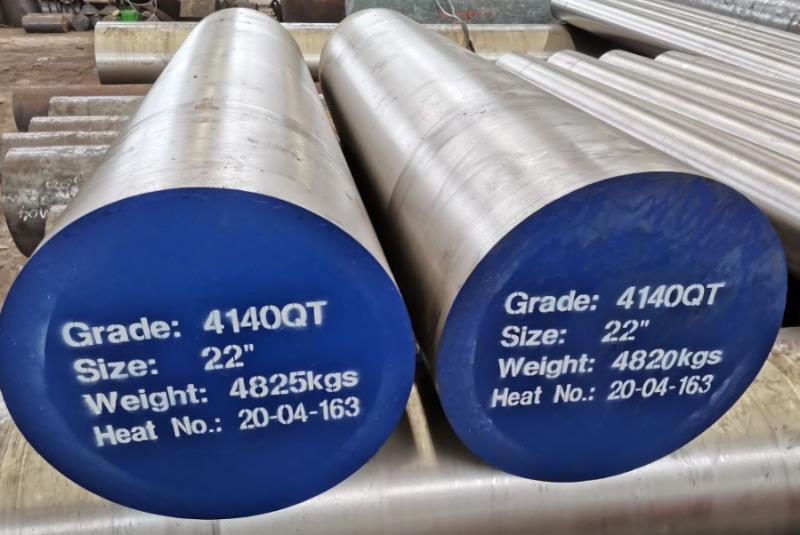
Composition, Properties, and Characteristics
Let’s delve deeper into the nitty-gritty of 4140 alloy steel by dissecting its composition, properties, and characteristics:
| Composition | Percentage (Typical) |
|---|---|
| Carbon (C) | 0.38-0.43 |
| Manganese (Mn) | 0.75-1.00 |
| Chromium (Cr) | 0.80-1.25 |
| Molybdenum (Mo) | 0.15-0.25 |
| Silicon (Si) | 0.15-0.35 |
| Phosphorus (P) | Max 0.040 |
| Sulfur (S) | Max 0.035 |
Key Properties of 4140 Alloy Steel:
- High Strength: Compared to plain carbon steel, 4140 offers significantly improved tensile strength, yield strength, and fatigue strength. Imagine it as a more muscular version of steel, capable of withstanding greater loads without breaking or deforming.
- Excellent Toughness: 4140 exhibits impressive resistance to cracking and shattering, making it ideal for applications that experience high impact or stress. Think of it like a superhero’s suit of armor, absorbing and deflecting blows without succumbing to damage.
- Good Weldability: This steel can be readily welded using various techniques, a crucial factor for fabricating complex shapes and structures. It’s like a cooperative material, easily forming strong bonds when joining pieces.
- Machinability: While not the easiest steel to machine compared to some softer options, 4140 can still be shaped and formed using proper techniques. It’s like a determined athlete; with the right training and tools, it can be molded into the desired form.
- Heat Treatability: The properties of 4140 can be further enhanced through heat treatment processes like quenching and tempering. This allows engineers to tailor the steel’s strength, toughness, and ductility for specific applications. Imagine it as a chameleon; through heat treatment, it can adapt its characteristics to meet different needs.
Characteristics of 4140 Alloy Steel:
- Versatility: This is perhaps the most defining characteristic of 4140. Its combination of properties makes it suitable for a wide range of applications across various industries.
- Cost-Effectiveness: Compared to some high-alloy steels, 4140 offers excellent value for its properties. It strikes a sweet spot between affordability and performance.
- Reliability: With a well-established track record and consistent properties, 4140 is a reliable choice for engineers seeking a dependable material.
Applications Special Steel 4140 Alloy Steel
The versatility of 4140 alloy steel translates into a diverse range of applications. Here are some prominent examples:
- Automotive Industry: From crankshafts and gears to suspension components and axles, 4140 is a workhorse in the automotive world. Its strength, toughness, and fatigue resistance make it ideal for parts that endure high stress and wear. Imagine the relentless power of an engine being channeled and controlled by 4140 components.
- Construction Machinery: Heavy-duty equipment like cranes, excavators, and bulldozers rely on 4140 for critical components like booms, buckets, and linkages. This steel can handle the immense forces involved in construction projects, ensuring the equipment’s durability and safety.
- Aerospace Industry: While not the only steel used in aerospace applications, 4140 finds its place in landing gear components, engine mounts, and certain airframe elements. Its strength-to-weight ratio is a valuable consideration in weight-sensitive aerospace design.
- Oil and Gas Industry: Components like drill pipes, wellhead equipment, and downhole tools often utilize 4140 due to its ability to withstand the harsh conditions encountered in oil and gas exploration and extraction. It can handle high pressure, corrosive environments, and demanding loads.
- Firearms Industry: Barrels, receivers, and other critical components in firearms sometimes utilize 4140 due to its strength and ability to handle the tremendous forces generated during firing. However, it’s important to note that specific firearm applications may have stricter material requirements depending on design and regulations.
- Agricultural Equipment: Shafts, gears, and connecting rods in various agricultural machinery often benefit from the strength and wear resistance offered by 4140. It can handle the demanding tasks involved in farming operations.
- General Manufacturing: Gears, shafts, couplings, fasteners, and other machine components frequently rely on 4140 for its versatility and ability to perform under various load conditions.
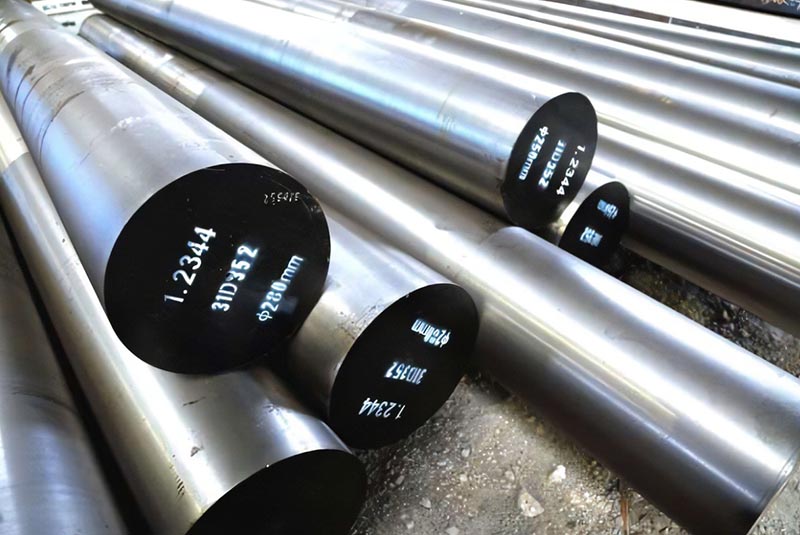
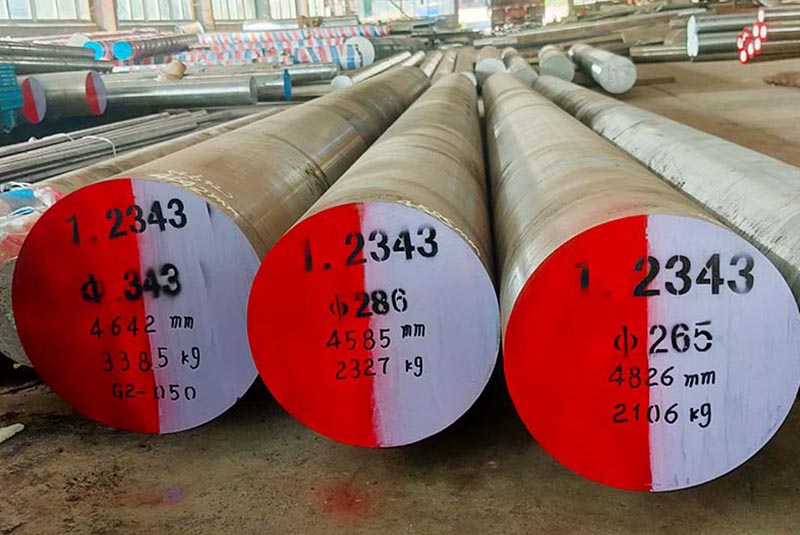
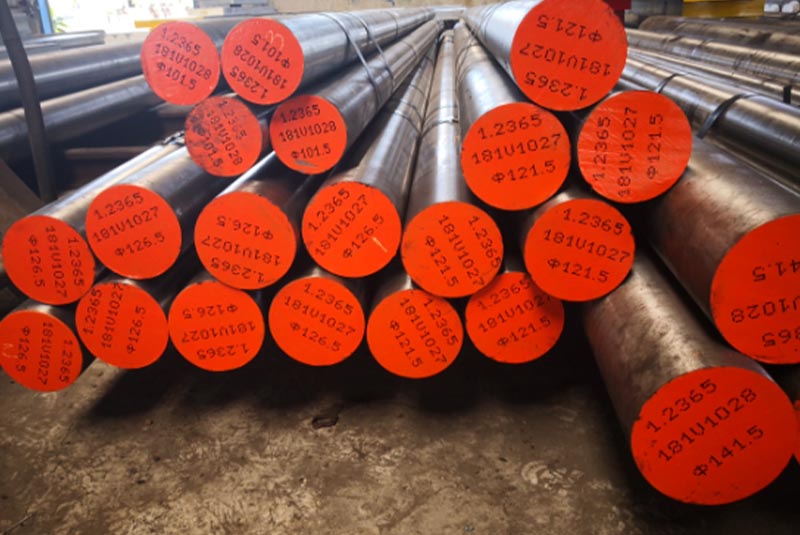
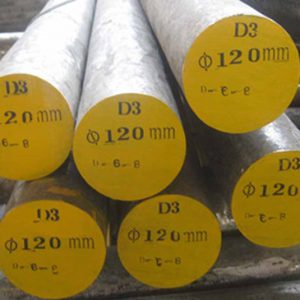
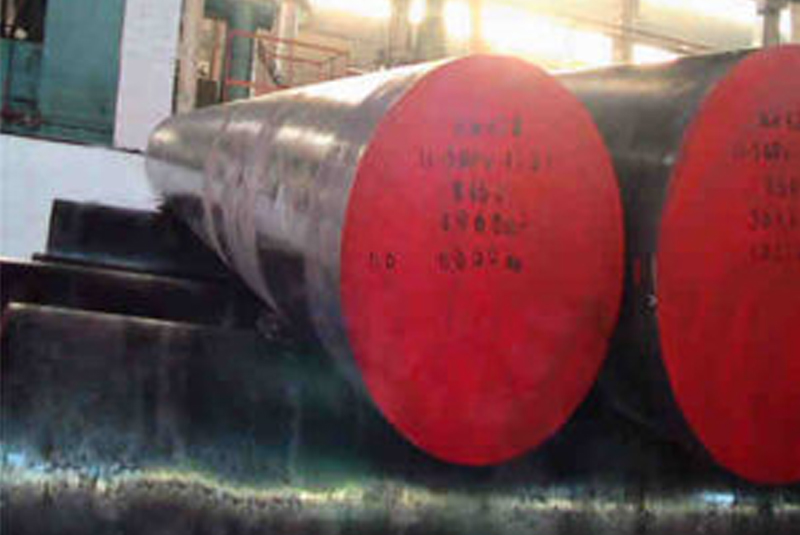
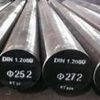
Metal Powder Models for 4140 Alloy Steel
While traditionally produced through ingot metallurgy, advancements in metal additive manufacturing (3D printing) have opened doors for creating 4140 alloy steel using metal powders. Here are 10 specific metal powder models to consider:
- Höganäs Astaloy CrMo4: This gas-atomized powder offers good flowability and packing density, making it suitable for various 3D printing processes.
- Carpenter Additive AM 4140: Tailored for laser beam melting (LBM), this powder boasts high strength and good toughness after heat treatment.
- SLM Solutions SX | 1 4140: Optimized for selective laser melting (SLM), this powder delivers excellent mechanical properties similar to wrought 4140.
- EOS M 290: This EOS-branded powder offers compatibility with multiple laser 3D printing systems and exhibits good printability.
- AMPA AM4140: This gas-atomized powder caters to various 3D printing technologies and provides a balance between strength and ductility.
- Voxeljet VX4140: Designed for binder jetting additive manufacturing, this powder enables the creation of complex near-net-shape components in 4140.
- ExOne M-4140: Another option for binder jetting, this ExOne material offers a cost-effective way to produce 4140 parts with good dimensional accuracy.
- LPW 4140: This metal powder from LPW Technology is formulated for laser powder bed fusion (LPBF) and delivers high-performance results.
- Proto Labs 4140: Proto Labs offers a proprietary metal powder model for their 3D printing services, ensuring consistent quality and performance for 4140 components.
- Custom Alloyed Powders: Several companies specialize in producing custom metal powders. They can create a 4140 powder with specific chemical compositions or particle size distributions to cater to unique application needs.
It’s important to note that metal powder characteristics and printability can vary depending on the manufacturer. Consulting with a reputable metal additive manufacturing service provider is crucial for selecting the most suitable 4140 powder for your specific project requirements.
Advantages and Limitations of 4140 Alloy Steel
Every material has its own set of pros and cons. Let’s explore the advantages and limitations of 4140 alloy steel:
Advantages:
- High Strength and Toughness: 4140 alloy steel boasts superior strength and toughness compared to plain carbon steel. This makes it ideal for applications that experience high stress, impact, and wear. Imagine it as a knight’s armor, deflecting blows and protecting the wearer from harm.
- Excellent Weldability: This steel can be readily welded using various techniques, including arc welding, gas welding, and resistance welding. This allows for the fabrication of complex shapes and structures by joining multiple pieces. Think of it like building with strong, secure connections.
- Machinability: While not the easiest to machine compared to some softer steels, 4140 can still be shaped and formed using proper techniques and tooling. With the right approach, it can be sculpted into the desired form.
- Heat Treatability: The properties of 4140 can be further enhanced through heat treatment processes like quenching and tempering. This allows engineers to fine-tune the steel’s strength, toughness, and ductility to meet specific application needs. It’s like having a material that can adapt to different situations through heat treatment.
- Versatility: This is perhaps the most significant advantage of 4140. Its combination of properties makes it suitable for a wide range of applications across various industries. It’s a true multi-tasker in the world of steel.
- Cost-Effectiveness: Compared to some high-alloy steels, 4140 offers excellent value for the properties it delivers. It strikes a good balance between affordability and performance. You get a lot of bang for your buck with 4140.
- Reliability: With a well-established track record and consistent properties, 4140 is a reliable choice for engineers seeking a dependable material. It’s like a seasoned veteran, performing consistently and predictably.
Limitations:
- Weight: Compared to some lighter-weight steels or advanced composites, 4140 can be denser. This may be a factor in applications where weight reduction is a critical concern. In situations where every ounce counts, you might need to consider alternative materials.
- Corrosion Resistance: While offering some level of corrosion resistance due to the presence of chromium, 4140 is not necessarily the best choice for highly corrosive environments. For applications exposed to harsh chemicals or saltwater, you might need a steel with a higher chromium content or additional corrosion protection measures.
- Machinability Compared to Softer Steels: As mentioned earlier, 4140 requires more effort and specialized tooling to machine compared to softer steels. This can translate to higher machining costs and slower production times. If machinability is a top priority, consider a different steel grade or optimize your machining processes for 4140.
- Not Ideal for All Firearm Applications: While useable in some firearm components, 4140 might not meet the stringent material requirements for all firearms due to specific design considerations and regulations. Always consult with qualified professionals when selecting materials for firearms.
Understanding 4140 Through Specifications, Sizes, Grades, and Standards
To ensure consistent quality and performance, 4140 alloy steel adheres to various specifications, comes in different sizes and grades, and complies with specific industry standards. Here’s a breakdown:
| Property | Description |
|---|---|
| Specifications | Common specifications for 4140 include ASTM A29 (forged or rolled products), ASTM A47 (round shapes), and AMS 6441 (aerospace applications). These specifications outline the chemical composition, mechanical properties, and testing requirements for the steel. |
| Sizes | 4140 is available in a wide range of shapes and sizes, including bars, plates, sheets, tubes, and pipes. The specific size selection depends on the intended application. Imagine a toolbox filled with different sized wrenches; each size is suited for a particular task. |
| Grades | There are different grades of 4140 available, with slight variations in chemical composition to achieve specific property targets. Some common grades include 4140H (high hardenability) and 4142 (modified chromium content for improved hardenability). |
| Standards | 4140 often complies with industry standards set by organizations like ASTM International (American Society for Testing and Materials) and SAE International (Society of Automotive Engineers). These standards ensure the material meets specific performance criteria. |
Price and Suppliers of 4140 Alloy Steel
The price of 4140 alloy steel can vary depending on several factors, including:
- Form (bar, plate, sheet, etc.)
- Size (diameter, thickness, etc.)
- Quantity
- Location
- Supplier
- Market fluctuations
Here’s a general idea (prices are subject to change):
- Bars: Prices can range from $2 to $10 per kilogram depending on size and quantity.
- Plates: Expect prices to be in the $3 to $12 per kilogram range, again influenced by size and quantity.
Finding reputable suppliers of 4140 alloy steel is relatively easy. Here are some options:
- Metal Service Centers: These facilities stock and distribute a wide variety of metal products, including 4140 in various forms and sizes.
- Online Retailers: Several online retailers specialize in selling metal products, and some may offer 4140 with competitive pricing and convenient ordering options.
- Steel Mills: Large steel mills produce raw 4140 ingots or slabs. They may not sell directly to end users, but they supply metal service centers and distributors who cater to smaller orders.
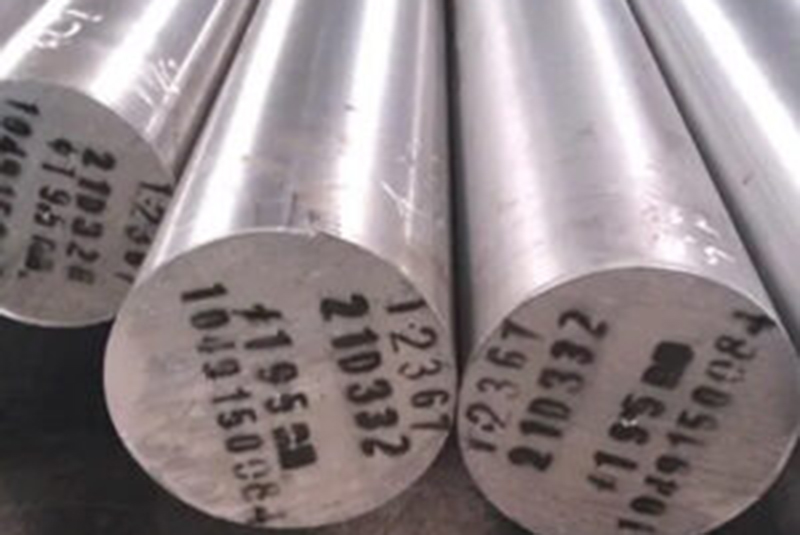
The Final Verdict: Is 4140 Alloy Steel Right for You?
Choosing the right material for a project requires careful consideration of several factors. Here’s a helpful approach to deciding if 4140 alloy steel is the best fit for your needs:
- Application Requirements: Identify the key demands of your application. Does it involve high stress, impact, or wear? Does weight reduction play a crucial role?
- Property Needs: Consider the specific properties you require, such as strength, toughness, machinability, and corrosion resistance.
- Budget: Factor in the cost of the material itself, as well as any additional processing costs like machining or heat treatment.
- Availability: Ensure you can readily source 4140 in the required form and quantity.
When 4140 Shines:
- If your project demands a strong, tough, and versatile steel that can be welded and heat treated, 4140 is an excellent choice.
- For applications where cost-effectiveness and a good balance of properties are important, 4140 presents a compelling option.
- In situations where weight is not a critical concern, 4140’s strength and toughness make it a reliable performer.
When to Consider Alternatives:
- If weight reduction is paramount, explore lighter-weight steel alloys or advanced composites.
- For highly corrosive environments, consider steels with higher chromium content or additional corrosion protection measures.
- If machinability is a top priority, evaluate softer steels or optimize your machining processes for 4140.
- When dealing with firearms, always consult with qualified professionals to ensure the chosen material meets specific design considerations and regulations.
FAQ
| Question | Answer |
|---|---|
| What is the difference between 4140 and 4130 steel? | 4130 has a slightly lower carbon content than 4140, resulting in a touch lower overall strength but slightly better weldability. |
| Can 4140 be used for knives? | While possible, 4140 might not be the ideal choice for all knives due to the availability of steels specifically formulated for superior edge retention and wear resistance. |
| How strong is 4140 steel compared to other steels? | 4140 offers significantly higher strength than plain carbon steel. Compared to some high-alloy steels, it provides a good balance between strength and affordability. |
| Is 4140 magnetic? | Yes, 4140 is a ferrous material and exhibits magnetic properties. |
| What are some alternatives to 4140 steel? | Depending on the application requirements, alternative materials could include: * Lighter-weight steel alloys like 4130 or chromoly steels * High-alloy steels for superior strength or specific properties * Advanced composites for weight reduction and excellent strength-to-weight ratios |

